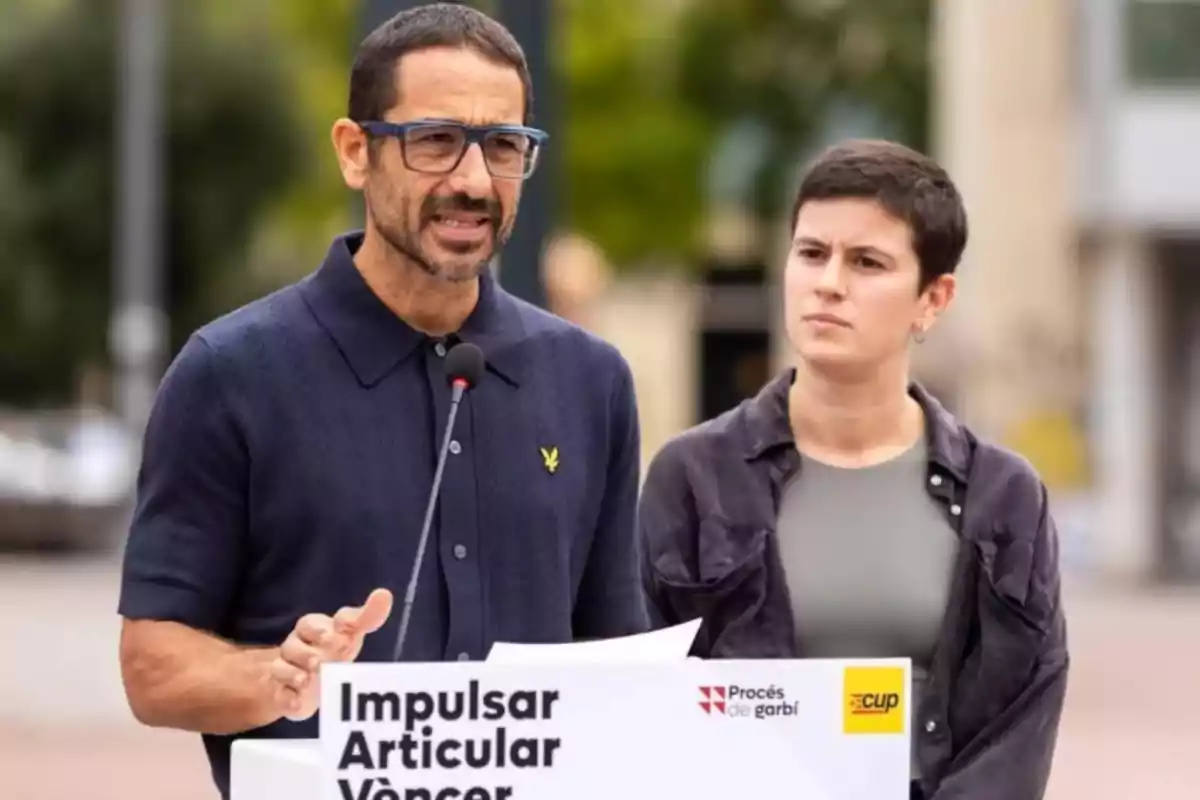
The Reality Check for CUP: From 'No to Everything' to Copying Orriols
Anti-System Groups Entrench Themselves in Municipal Politics to Try to Reverse Their Decline
Even though it wasn't by choice, the CUP was the first party to acknowledge the collapse of the "procés". Even before the last regional elections, the CUP already had the Procés Garbí underway. The reason for getting ahead of the renewals of Junts and ERC was as prosaic as the fact that the CUP had been accumulating more electoral failures.
Apart from the usual grandiloquence of the CUP, the conclusion of the Garbí was equally prosaic: the CUP needed to be a more normal party. In other words, the anti-establishment admitted that their party had gotten lost in a jungle of political maximalism and linguistic baroquism. In fact, one of the conclusions was to have more accessible communication adjusted to social media, something they have timidly started to implement.
The other two pillars of the internal catharsis were i) forging alliances with other parties, and ii) making organic changes to minimize the legendary internal slowness of the CUP. The latter resulted in the creation of a general secretariat for the first time, presided over by Non Casadevall. Meanwhile, in the area of alliances with other parties, the CUP has already agreed to approve several municipal budgets across Catalonia.

In the end, all this translates into having a much more realistic strategy aligned with the real needs of voters. As expected, this transition is not without hypocrisy. The clearest examples of this transition have been seen in municipal politics, specifically in Girona and Berga, where they hold mayoralties.
From these councils, the CUP has shifted from a radical 'no to everything' stance to adopting right-wing theses. Thus, we have seen the mayor of Berga calling for a tougher penal code, or the mayor of Girona scrutinizing the census. Meanwhile, the national CUP remains silent and continues with the usual woke rhetoric, to the point of applauding the Salt riots.
In Girona, They Put on a Tie
As reported yesterday, the city of Girona, governed by the cupaire Lluc Salellas, had tightened the controls of the municipal census. This resulted in a 718% increase in the number of fraudulent census cases in the city. Similarly, municipal authorities accepted the evidence that many of these frauds are committed by immigrants seeking social assistance.
For anyone who has followed Catalan political news, this is of great hypocrisy. Until a few months ago, the CUP was attacking Sílvia Orriols for doing exactly what Salellas has done in Girona. That is, reviewing the legality of the censuses through police control at the address provided by the applicant.
Before this, Girona also experienced episodes of vandalism against a civic center and the municipal police. Instead of the usual pro-riot rhetoric, Mayor Salellas condemned the events and announced that the City Council would participate in the corresponding judicial process. "Assaulting a public and social facility that serves the neighborhoods of Girona is intolerable," said Salellas through social media:
A Strategy Against the Shipwreck
But this is just another example of the CUP's change in discourse when they face real power and management. In the city of Berga, for example, another historical stronghold of the CUP, they have had to sound the alarm over the uncontrolled rise of repeat offenses. The city's mayor, Ivan Sánchez, also joined the voices calling for legislative changes against repeat offenses.
"We need the laws to change so we can act differently with people who systematically reoffend. I am in favor of maintaining their rights, but also of a review of the laws," said the mayor of Berga last September.

In the cities where they do not govern, the CUP has agreed to approve municipal budgets, as happened in Vilafranca del Penedès. As is usual in these cases, the weaker force (the CUP) justified their support in the name of the social utility of the budgets. More specifically, the social issue that is most pressing at the moment, such as housing.
This change in strategy puts the CUP in the wake of parties like Aliança Catalana or Vox, which have oriented themselves toward the upcoming municipal elections. In this sense, municipal politics, much closer to real needs, allows for this type of image makeover. The big question is whether voters will still carry the disillusionment of the entire "procés" decade into 2027 .
More posts: